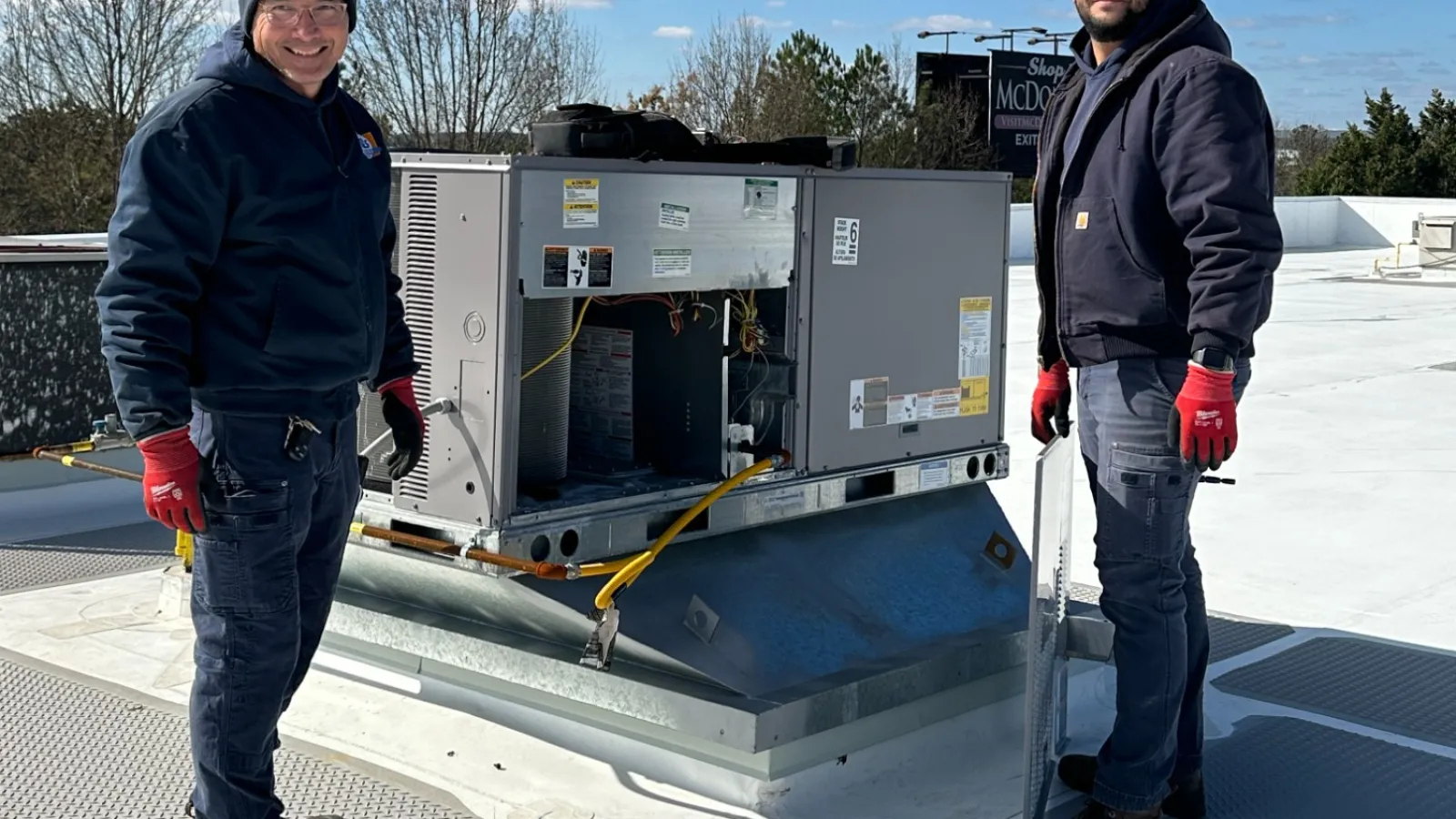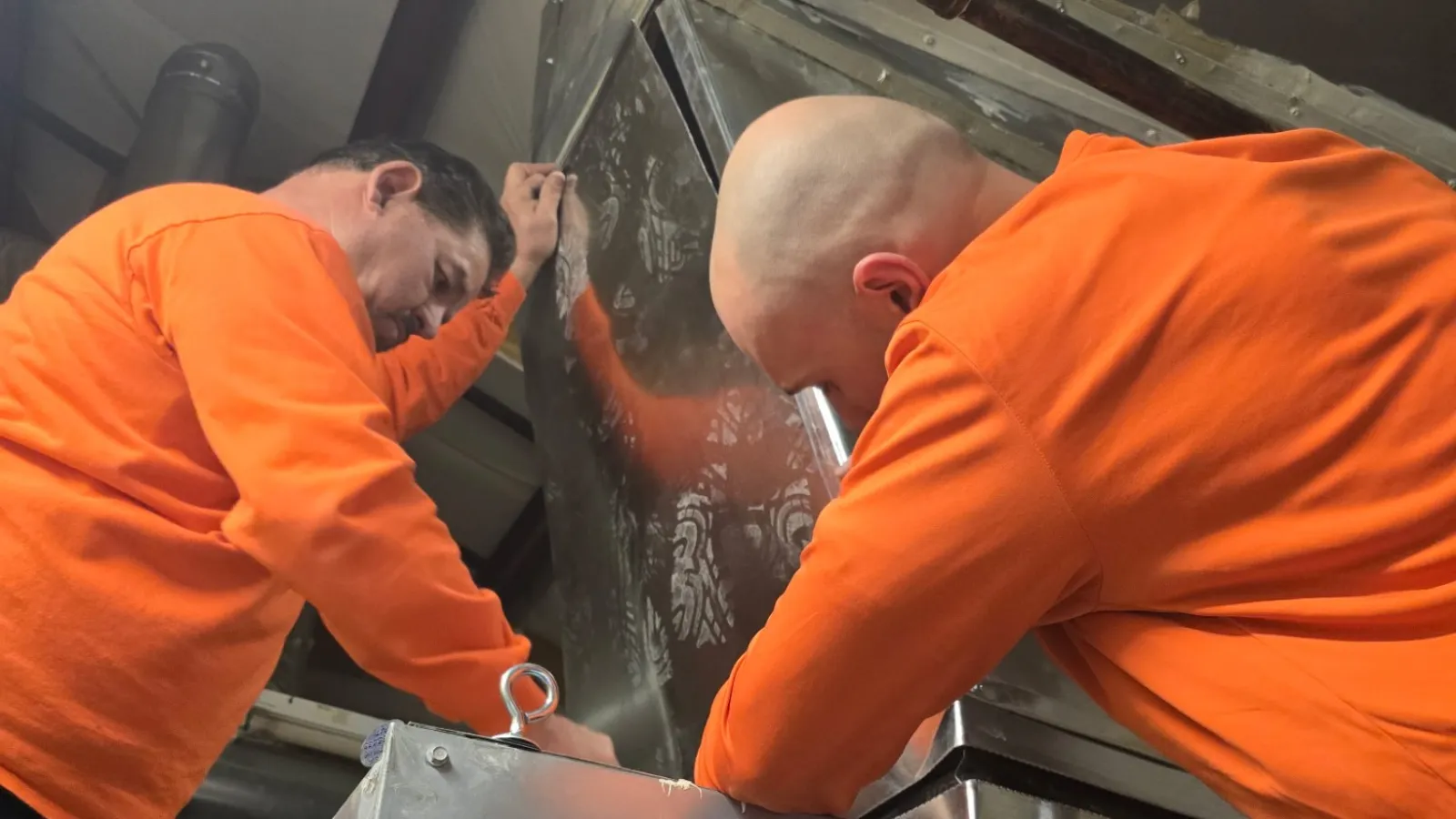If you care about the performance of Atlanta schoolchildren, take a moment to consider HVAC and air quality. Standardized testing is around the corner; are your students distracted with inconsistent temperatures? Do you have a problem with absenteeism due to allergies and asthma? Incorporate better HVAC and air quality and enjoy multiple benefits. In this blog, we’ll cover why air quality is often poor in schools, its impact and what school corporations can do about it.
Air Quality and HVAC Situations in Schools
A few years ago, a survey by the National Center for Education Statistics released an estimate of the average age of the nation’s main school buildings to be 55 years old.
According to a 2018 article in the Atlanta Journal-Constitution, the average age of a DeKalb County School District campus, for example, is more than 40 years. This adds up to classrooms with no or inadequate heating and air conditioning. Structures of this age and in such heavy use are also subject to a large number of airborne pollutants.
According to the EPA, indoor levels of pollutants may be two to five times – occasionally more than 100 times – higher than outdoor levels. This air quality statistic is especially pertinent to schools because children are more vulnerable to air pollutants.
Examples of Airborne Contaminants Commonly Found In Schools
- Mold spores
- Secondhand smoke
- Dust and dust mites
- Pollen
- Carbon monoxide and carbon dioxide
- Lead
- Feces and body parts from cockroaches, rodents and other pests
- Viruses and bacteria
HVAC Status in Schools
In the AJC article, it noted the current situation many Atlanta teachers and students endure: Water leaking from the ceiling from multiple sources, including ductwork. High temperatures in classrooms due to poor or broken air conditioning.
Excessive moisture in the air during Atlanta’s humid weather makes it feel hotter. It also creates an opportunity for mold and mildew to grow.
How Air Quality and HVAC Affects Students and Test Scores
Absenteeism from More Illnesses, Including Allergies and Asthma
In short, poor air quality increases the number of students distracted with allergies or asthma symptoms. It becomes more difficult to recover from viral and bacteria-based illnesses and re-infection is an ongoing problem.
Asthmatic students spend more time in nurses’ offices coping with asthma attacks when they should be learning with classmates. All of this leads to greater absenteeism by both teachers and students.
Absenteeism means more than the cost to employ a substitute teacher. For students, it slows students’ progress. Absenteeism also impacts school ratings and funding, depending on the state.
Difficulties with Concentration
In his 2017 study, Harvard scientist Jisung Park concluded based on “evidence from 4.5 million New York City high school exit exams that heat exposure may affect educational performance in both the short and long run.”
In his paper, Park noted “taking an exam on a 90-degree day relative to a 72-degree day results in a reduction in exam performance” as well as long-term effects such as a “12.3 percent higher likelihood of failing a subject exam.”
The National Bureau of Economic Research studied the impact of temperature on approximately 10 million PSAT test-takers. They concluded the hotter the room, the lower the students scored. The study also noted warmer temperatures affected African-American and Hispanic students as much as three times more.
How to Improve Air Quality and HVAC in Schools
While budgets are often complex, a safe and healthy learning environment must be valued by those setting budgets and those for whom it affects. Schools should have up-to-date HVAC systems. Those HVAC systems must be properly maintained.
School HVAC Maintenance
Typical maintenance includes an inspection twice each year for proper performance. A professional HVAC technician looks for any signs of excessive wear and tear which indicate the need for a repair, a change in usage or an impending breakdown.
He or she checks for leaks which allows energy waste. In the case of combustible fuels, like gas furnaces, leaks allow CO into the air occupants breathe.
A significant air quality issue, CO is an odorless gas and manifests in flu-like symptoms. In large amounts it’s lethal. During regular maintenance, the HVAC technician cleans and lubricates any relevant components. He or she also tests electrical switches and controls.
Routine Internal Maintenance
Routine air filter changes are a must. When air filters are dirty, it obstructs the airflow through heating and air conditioning systems. This stresses the equipment and pollutes air quality.
Install Building Automation and Air Quality Equipment
Building automation systems monitor and collect data. Some systems monitor heating and air, including levels of carbon dioxide. Every student and teacher in the building expels carbon dioxide with every exhale.
Building automation systems monitor this air quality and activate ventilation to exhaust this along with stale air. Some building automation systems also control lighting, security, safety, fire and other systems. It allows greater control over the energy resources and if used correctly, save the corporation or business significantly in energy bills.
Indoor air quality equipment refers to dehumidifiers, air purifiers and media air cleaners, for example. Dehumidifiers in a climate like Atlanta are especially helpful. They take pressure off the air conditioners and help lower the overall humidity in a facility. This decreases the risk for mold, dust mites and other contaminants.
Conclusion: Functional HVAC and Healthy Air Quality Improve Learning and Test Scores
Estes Commercial is available to perform inspections, provide free estimates and help Atlanta-area schools provide a healthy and safe learning environment. With properly-functioning HVAC systems and air quality improvements, students are better prepared to learn. Contact us today to learn more about how we can improve your school.



